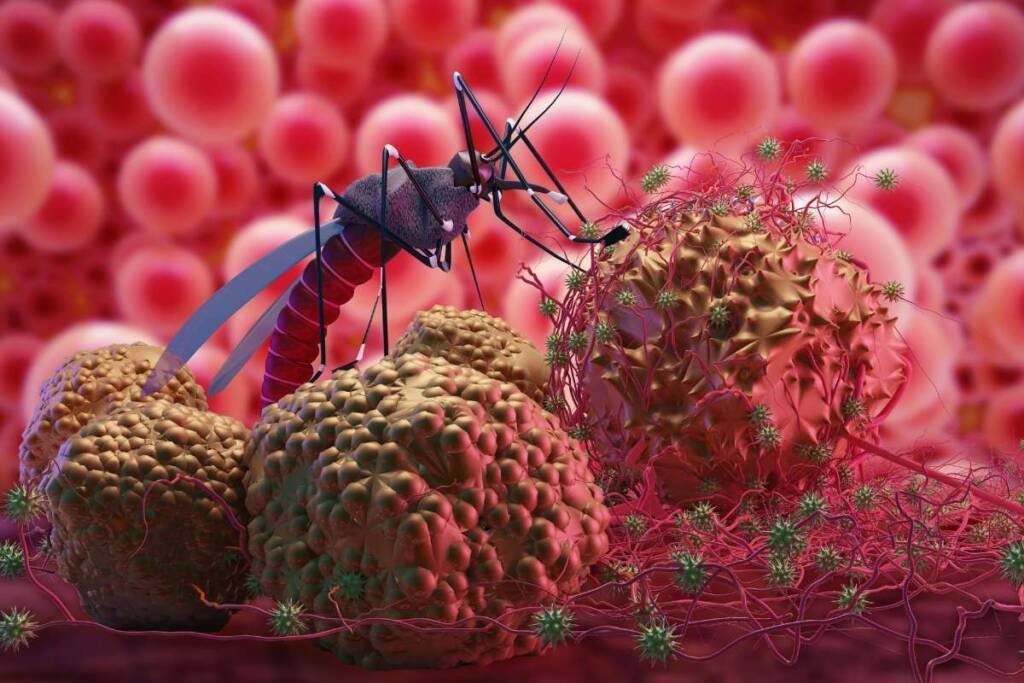Source – GSK
Researchers at GSK have made a remarkable discovery in the battle against malaria, and it’s not a new vaccine or antimalarial drug. Collaborating with scientists at Johns Hopkins Malaria Research Institute, they stumbled upon a strain of bacteria called Delftia tsuruhatensis, named Tres Cantos 1 (TC1), which shows the potential to inhibit malaria parasite colonization in mosquitoes.
In laboratory studies, this naturally occurring bacterium reduced the presence of the Plasmodium falciparum parasite in the salivary glands and midgut of two species of Anopheles mosquitoes, which are known carriers of malaria, by an impressive 73%. Even more promising, there was little evidence of the mosquitoes or the parasite developing resistance to the bacterium’s infection.
This groundbreaking finding opens up exciting possibilities for using TC1, commonly found in water, soil, and plants, as a safe method to reduce malaria transmission rates in areas where the disease is endemic. It could work in conjunction with other measures like mosquito nets and vaccines.
“This new discovery is the result of our ongoing commitment to malaria innovation at GSK, adding to the first ever vaccine against malaria, and the first ever radical cure for P. vivax malaria. An additional tool, Delftia tsuruhatensis Tres Cantos 1 (TC1), as an entirely novel approach for malaria control, has potential to further reduce the huge burden of malaria in endemic countries and is more evidence that through deploying a range of prevention approaches, we may be able to finally eradicate this terrible disease.”
– Thomas Breuer, Chief Global Health Officer, GSK
Additionally, TC1 demonstrated its potential to reduce levels of another malarial parasite species, P. berghei, raising hope that it may have a broader impact against all forms of the parasite that can cause disease in humans.
GSK has conducted studies in a controlled environment known as the ‘MosquitoSphere,’ a simulated village setting in Burkina Faso operated by the Institut de Recherche en Sciences de la Santé (IRSS). These studies suggest that the promising lab results may be successfully replicated in real-world conditions.
Compared to other approaches, such as using genetically modified organisms, TC1 offers an advantage as it does not require any modification and avoids potential unforeseen consequences.
The discovery of TC1’s activity was serendipitous, as GSK researchers in Tres Cantos, Spain, were originally investigating new antimalarial drugs. They noticed that mosquitoes used for malaria propagation were no longer carrying the parasites. Further research revealed that TC1 secretes small amounts of a molecule called harmane, which inhibits the early stages of P. falciparum development in the mosquito midgut. Importantly, the bacterium does not harm the mosquito and can coexist with the insect throughout its entire lifespan.
The findings have been published in the journal Science, and GSK intends to continue its work on TC1, collaborating with global health institutions to explore its potential application in real-world settings.
GSK stands out among major pharmaceutical companies for its significant dedication to infectious and tropical diseases. Last year, the company committed to investing approximately $1.2 billion over a decade in research and development in this area. GSK has already contributed to the development of the first commercial malaria vaccine, Mosquirix, and the first single-dose drug therapy for eradicating malaria caused by P. vivax.





























